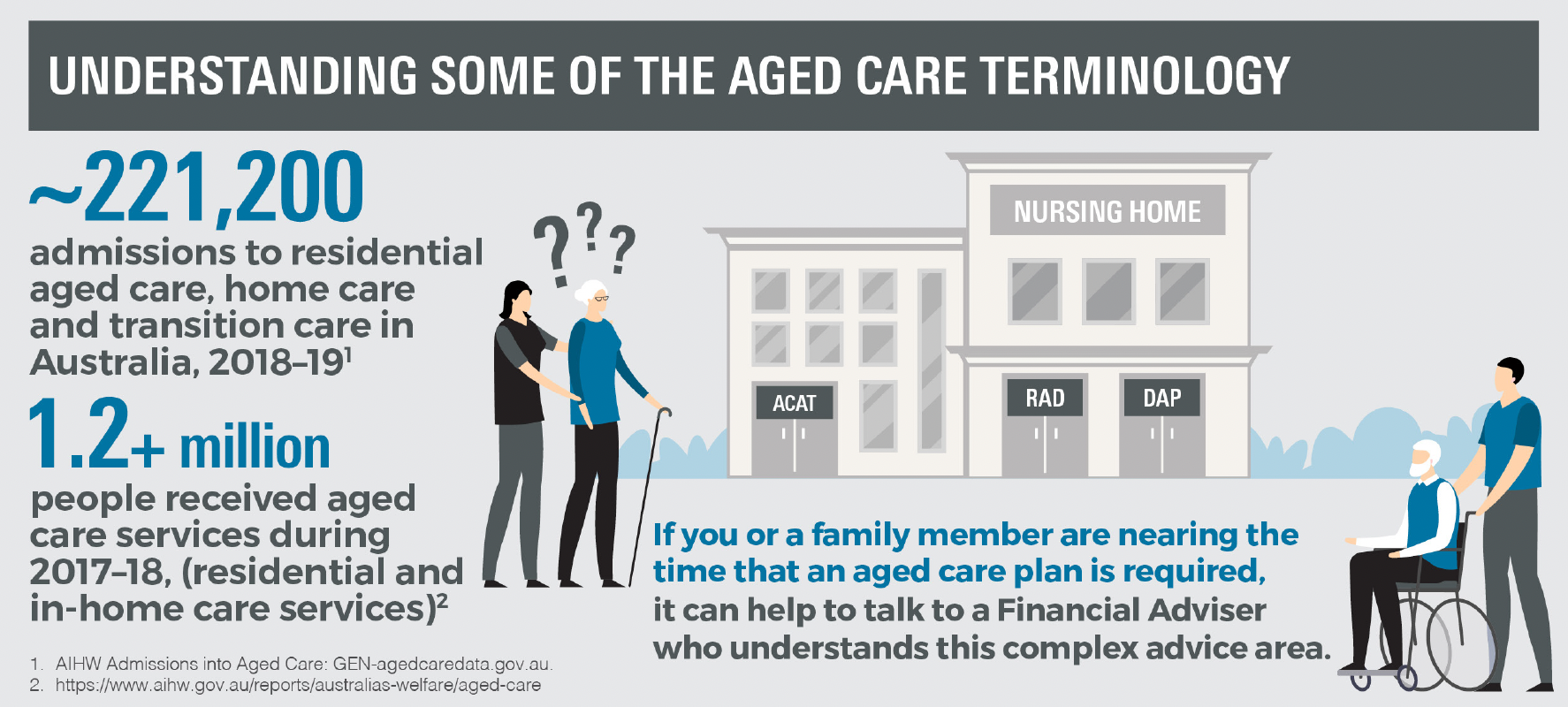Understanding some of the aged care terminology
Aged care is a complex and emotive topic and many people don’t think about their aged care needs until the time to do something is upon them – at which point the options can be limiting. This article explains a couple of the key areas to consider around your aged care plan.

Arranging an aged care assessment
When the time comes to move into a facility, one of the first steps is usually an assessment by a team of medical and health professionals who determine the eligibility of any government subsidised care. You can speak to your family doctor about getting an aged care assessment, or work with a Financial Adviser who can put you in touch with an Aged Care Assessment Team (ACAT).
Understanding an RAD and RAC
If you want or need to move into an aged care facility you will need to research different facilities, compare their services and ask them about the refundable accommodation deposit (RAD) or refundable accommodation contribution (RAC) which are required to secure a place at a facility.
The RAD is a lump sum payment for accommodation in an aged care home paid by the ingoing resident. It is essentially the cost of a room, in lump sum form that you agree to pay. The RAC is applicable when part of the cost of the room is paid for by the government, leaving you to only pay the difference as a lump sum.
Whilst the RAD and RAC are paid as a lump sum to the facility, by you, they are refundable upon a permanently leaving an aged care facility. Many times this will be at the time of death, so the amount is paid to your Estate.
In some situations, a family member agrees to pay the ingoing RAD or RAC fee to a facility, perhaps because the ingoing resident does not have the liquid cash available. If this is the case, there should be sufficient documentation so that upon death the money is refunded to the rightful recipient. The facility may offer to name this family member on the contract which should give all parties comfort in arrangement.
DAP and DAC
Another acronym you will come across is the DAP or the DAC. The Daily Accommodation Payment (DAP) is an amount to be paid by permanent residents of a facility that goes towards the cost of accommodation and care. Alternatively, the cost of accommodation and care for low-means residents is the Daily Accommodation Contribution (DAC) which is a reduced amount, based on an assessment of financial means.
More information
There is a good repository of information available on the My Aged Care website. It is worth taking a look at the website, noting down anything you don’t understand or would like further information on, and talking to your Financial Adviser.
Talk to us
If you or a family member are nearing the time that an aged care plan is required, it can help to talk to a Financial Adviser who understands this complex advice area and can answer any questions you have. It is often helpful to include close family members in these discussions.
We have capacity to take on new clients and welcome the opportunity to meet with you to discuss your aged care needs.
Sources
https://www.myagedcare.gov.au/
